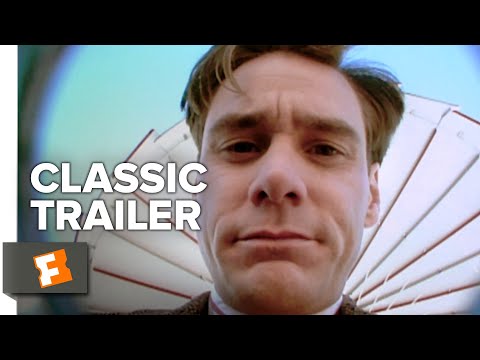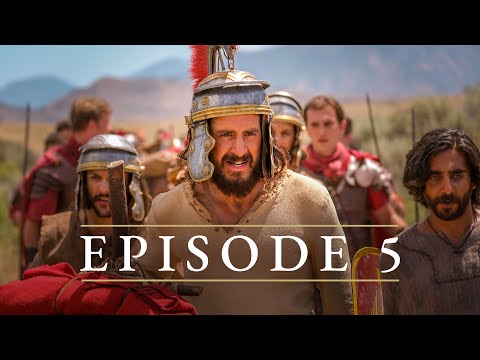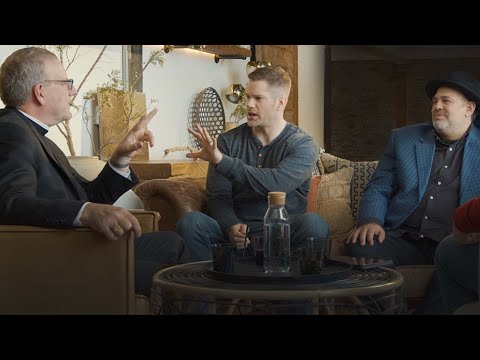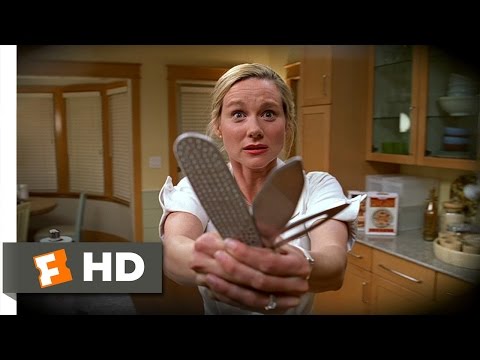Comparing “The Chosen” to “The Truman Show” may seem ungainly at first.
“The Chosen” is an actual series about Jesus and the apostles’ lives that has a real audience. “The Truman Show” is a 1998 movie about a fictional show based on one man’s outrageous but disguised mistreatment and awakening.

The parallels between the two stem from a description “The Chosen” gave itself: “a multi-season TV series about the life of Jesus…through the eyes of those who knew him.”
“The Chosen” overlaps with ‘The Truman Show’ (the show within the film) in terms of how the fan base connection is cultivated.
Unlike Jesus of Nazareth, Truman Burbank was a fictional character born in screenwriter Andrew Niccol’s mind and directed by Peter Weir. The concept of Truman was that he would be the only non-staged character in the titular show. He would be followed, uninformed and unconsenting, by reality TV cameras giving him a relatable, unique and special role to the show’s audiences.
Truman did not volunteer for his life’s predicament, while Jesus said of His life:
“No one has taken it away from Me, but I lay it down on My own initiative. I have authority to lay it down, and I have authority to take it up again” (John 10:18).
If you translate across the actual/fictional divide, however, both “The Chosen” and ‘The Truman Show’ feature certain characteristics: exceptional levels of audience engagement, genuineness amidst systems built on inauthenticity; and character arcs toward potential deliverances.
Roger Ebert points out in a review of “The Truman Show” that Christof, the fictional ‘Truman Show’ creator, is so involved in generating public endearment that he “discusses his programming on talk shows, and dismisses the protests [against ‘The Truman Show’]…meanwhile, the whole world watches Truman’s every move, and some viewers even leave the TV on all night, as he sleeps.”
Active as Christof‘s public engagement for ‘The Truman Show’ may have been, “The Chosen” showrunner Dallas Jenkins’ interaction with the show’s worldwide community arguably dwarfs Christof’s. Each episode includes a live stream in which Jenkins addresses the viewership at the opening, at the closing, and in responding extensively to audience members’ input and questions in between.

Even during off seasons, often amid active production, Jenkins films conversational videos for social channels of “The Chosen,” which he at times calls “family talks.” Thus, both “The Chosen” and ‘The Truman Show’ help fill people’s need for meaning.
Essential questions are, of course, what sort of meaning does each show fill people with, and what is the promised deliverance of its respective message?
Perhaps people who are receptive to knowing Jesus as the God-sent savior from sin prefer the filling-up they receive from ‘The Chosen.” Those partial to the idea that we must save ourselves might prefer the filling they get from Truman’s escape in ‘The Truman Show’ scenario.
However, one would be hard-pressed to rule out ‘Truman Show’ fans from also being fans of “The Chosen.” Themes of truthfulness, genuine relationship, courage, facing obstacles, faith in action and more pervade both.
The obvious resemblance between “The Chosen’s” fans and ‘Truman Show’ devotees begins with the fact that watchers of each tune in, year after year, to view events of a human who was born of woman for a particular reason.
Although Jesus is real, and Truman is fictional, within the two shows’ universes Truman plays himself among fakes, and Jesus elevates genuineness to the ultimate level as the Truth incarnate.
Unlike Truman as he appeared fictionally, Jesus hasn’t set a sandal on the Earth for about two thousand years.

Any liberties taken from the New Testament by “The Chosen’s” writing has sparked vehement debate since its inception.
Portraying the core of Christian faith and the lives of its martyrs and apostles is an endeavor dependent on recreating them thousands of years removed from their convictions and sacrifices.
For times such as these scripture reminds us, “Beloved, do not let this point escape your notice. With the Lord, a day is like a thousand years and a thousand years is like a day” (2 Peter 3:8).
Using technologies in our palms that can occlude people from their need for grace and make them think first about saving themselves from surveillance, “The Chosen” hopes, through the media landscape, to bring the Gospel message nearer to a billion people.
Tuning in weekly to watch and draw close to a version, respectively, of the hope of the world may lend “The Chosen” fans an appearance of mirroring ‘The Truman Show’ fans.
Yet a clear distinction rests on the long-term intents and types of deliverance presented to the two respective fan bases.

‘Truman Show’ fans certainly had sympatico with Truman Burbank, but is there evidence that outside the show’s firmament of a domed building, fans would treat Truman any differently from the spectacle he has always been to them?
Ironically, “The Truman Show” protesters–not its fans–would likely be first to welcome Truman as a human being and not merely as a consumer entertainment object. Then again, activists with righteous-sounding causes have an unimpressive record of being compassionate people with the virtues they signal.
Bible stories from the first disciple callings to the road to Emmaus, on the other hand, inculcate Christians with the hope of having the Holy Spirit in them that they might recognize and receive a new arrival of Jesus.
“The Chosen” presents Jesus and the apostles as spiritually coming of age, the central challenge of their lives drawing near. To be in the orbit of “The Chosen” is to be nudged and supported to open your Bible and know the true Christ.
That’s where the similarities between the shows come to a halt.
Michael Bedar’s articles appear in Free the People, The Federalist and American Spectator. He is the author of a novel and maker of documentaries about freedom, nature, and well being. His new work is a children’s book on free speech for countering censorship, Freedom Reigns Over the Bog, from Mind Watering Publishing.
The post How ‘The Chosen’ and ‘Truman Show’ Oddly Overlap appeared first on Hollywood in Toto.